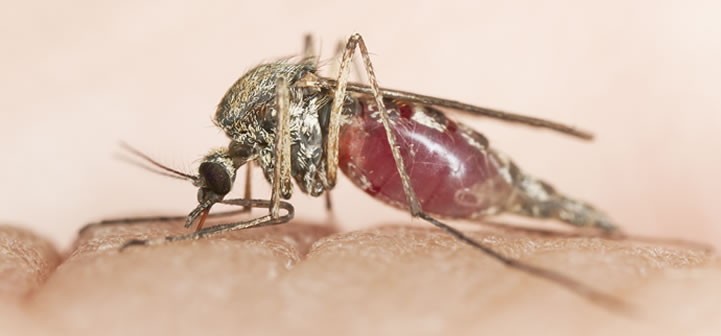Mosquitoes and Schools
Basics

Photo Credit: CDC
There are approximately 3,500 species of mosquitoes inhabiting numerous types of climates, including deserts at or below sea level to mountain meadows 10,000 feet or more above sea level.
Mosquito adults are small two-winged flies that resemble nonbiting midges. The female mosquito has a long slender proboscis used to pierce skin and suck blood. Male mosquitos use their proboscises to suck plant juices and other sources of sugar, not blood.
Life Cycles: Mosquito life cycles vary widely among the different species. Female mosquitoes, for example, may lay a single egg in moist soil or up to one hundred on calm water surfaces. Eggs laid on water generally hatch within a day or two; those laid in moist soil may only hatch once the soil is flooded. In any scenario, the common element is presence of moisture. In the summer, the entire life cycle, from egg to adult, occurs within one week depending upon temperature.
Health Concerns
Most mosquito species seldom pose a threat to human health; however, several readily attack people and can transmit micro-organisms that cause serious disease. Even bites from mosquitoes that don’t transmit disease can result in secondary infections, allergic reactions, pain, irritation, redness, and itching.
Read about diseases carried by mosquitoes.
Integrated Pest Management (IPM) Strategies
Mosquito management is about controlling population levels. This is most appropriately accomplished by:
- Reducing aquatic habitats or stocking larvae-feeding fish (especially in stagnant water).
- Controlling excess runoff water (including high volume use or leaking equipment).
- Removing decaying vegetation.
- Increasing air movement and using screens in areas frequented by people.
- Using insect repellents approved for mosquitoes if outdoors.
